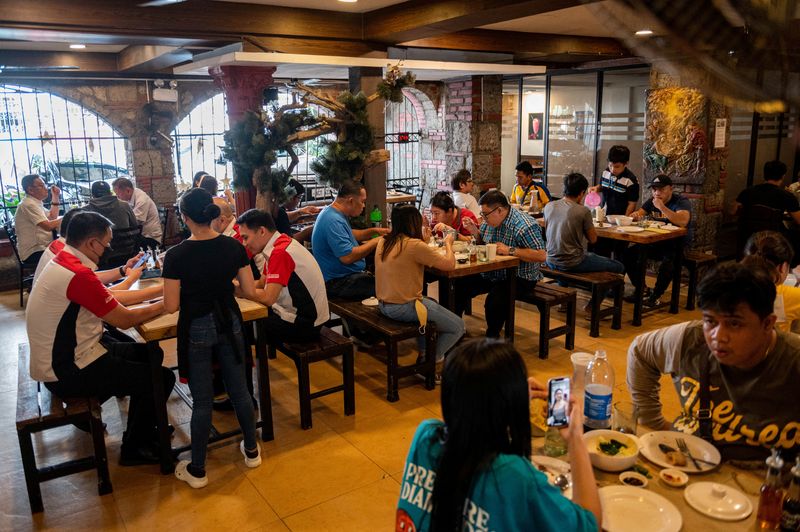MANILA (Reuters) – Philippine annual inflation accelerated at its slowest rate in more than four years in September due to a slower rise in food prices and downtrend in transport costs, giving the central bank room to cut interest rates further.
The consumer price index (CPI) rose 1.9% in September from a year earlier, the smallest increase since May 2020. It was also less than the previous month’s 3.3% print and below the 2.5% forecast in a Reuters poll.
With last month’s data, Finance Secretary Ralph Recto said inflation could settle around 3.2% this year, within the central bank’s 2% to 4% target.
“This gives the BSP more room to be aggressive in its monetary policy easing to help the economy grow at a faster rate and support the government in increasing its revenue collections,” Recto said in a statement.
The BSP said in a statement on Friday that inflation is expected to trend downwards in the succeeding quarters on easing supply pressures from food and base effects from higher consumer prices last year.
“The balance of risks to the inflation outlook continues to lean toward the downside for 2024 and 2025 with a slight tilt to the upside for 2026,” the central bank said.
It brought year-to-date average inflation to 3.4%.
Core inflation, which strips out volatile food and energy prices, also slowed to 2.4% in September from 2.6% in August.
Last month’s deceleration in food inflation was driven by a significant slowdown in rice price increases to 5.7% from 14.7% in August, due to base effects and the impact of reduced tariffs.

The central bank, which cut its policy rate by 25 basis points to 6.25% in August, the first reduction in nearly four years, will meet on Oct. 16 to decide on the direction of interest rates.
BSP Governor Eli Remolona has said two 25 basis point cuts, one in October and another in December were possible with inflation on an easing trend.
To read the full article, Click Here

